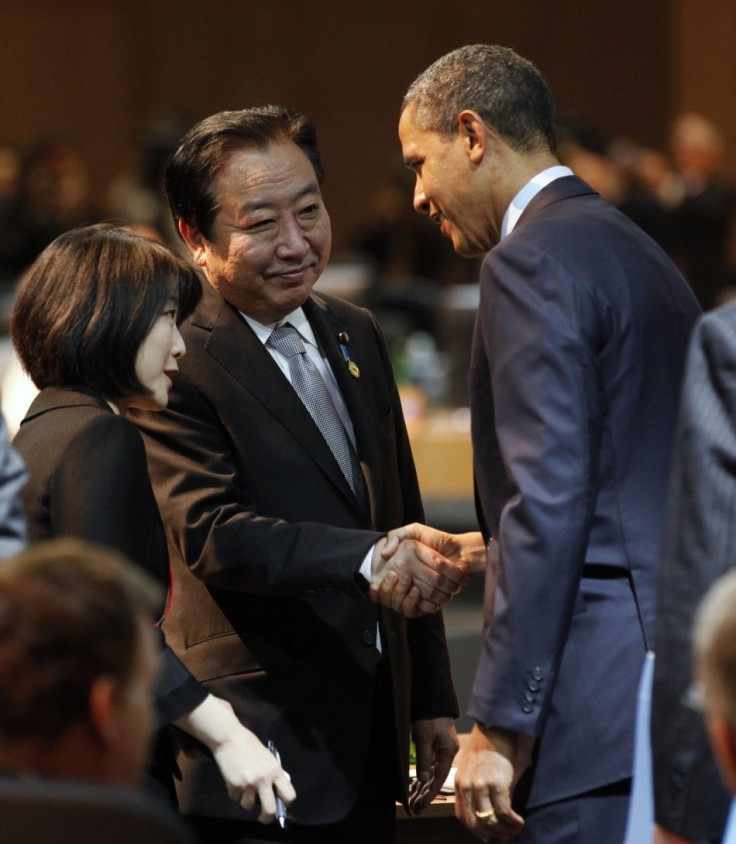Japan's Prime Minister Visits U.S. To Boost Trade Ties, Talk Nuclear Issues

Japan's Prime Minister Yoshihiko Noda arrives in Washington on Monday for a three days of bilateral discussions and events with U.S. President Barack Obama in order to boost trade ties between the two long-time allies and to address key global issues.
Before leaving for the U.S., Noda told reporters: I would like to exchange views candidly on the vision of a future U.S.-Japan alliance,'' the BBC reported.
''I want the meeting to be fruitful so that the public can see clear results, he added.
Japan, with the world's third largest national economy, is an important trade partner and ally to the U.S. and a key strategic ally in the U.S.' attempts to counter-balance China's rising global power.
This visit, however, is to be the first time that the White House will host a Japanese leader since 2009 -- Obama's first year in office, when the Democratic Party of Japan came to power under Yukio Hatoyama; the party favored a policy of gradually moving away from U.S. influence.
Among the issues that will be discussed are the recent U.S. decision to move 9,000 troops from a marine base on Okinawa Island; North Korea's controversial rocket launch and its implications for regional security, economic sanctions on Iran, and trade agreements.
With respect to the Okinawa redeployment, the current plan would still leave some 10,000 troops remaining at the base, a far cry from what many Japanese had hoped would be a complete relocation. The plan is to continue discussing this issue in the next few days in hopes of eliminating this ongoing strain on U.S.-Japan relations.
The threat of nuclear power on international security will also play a central role at the Washington summit: a threat arising both from the North Korean and Iranian nuclear programs.
Japan and the U.S. hope to develop common policies to address both threats. Reaching an agreement on foreign policy toward Iran in the past has been difficult. Japan relies heavily on Iran for oil imports. Although Japan has already agreed to cut such imports by up to 22 percent, according to a BBC estimate, the U.S. hopes Tokyo will continue to make additional cuts.
The U.S. would also like to see some progress in Japan's nuclear energy sector.
In the wake of the 2011 nuclear disaster in Japan that arose from the earthquake-tsunami, Japan decommissioned most of the nation's reactors. The U.S. hopes that Japan may now revive its nuclear energy sector and reopen many of these facilities.
Noda also had previously expressed Japan's interest in joining the Trans-Pacific Partnership (TPP), a nine-nation trade accord led by the U.S. that aims to create a free trade zone throughout the Pacific Rim; however, because of domestic pressures -- namely from Japanese farmers -- it's possible that Noda may choose not to make this issue a central focus on his visit.
Following a working lunch with Obama, Noda is set to attend a gala dinner hosted by U.S. Secretary of State Hillary Clinton.
Noda and Obama will also hold a press conference at 2:15 p.m. EDT on Monday.
© Copyright IBTimes 2024. All rights reserved.



















